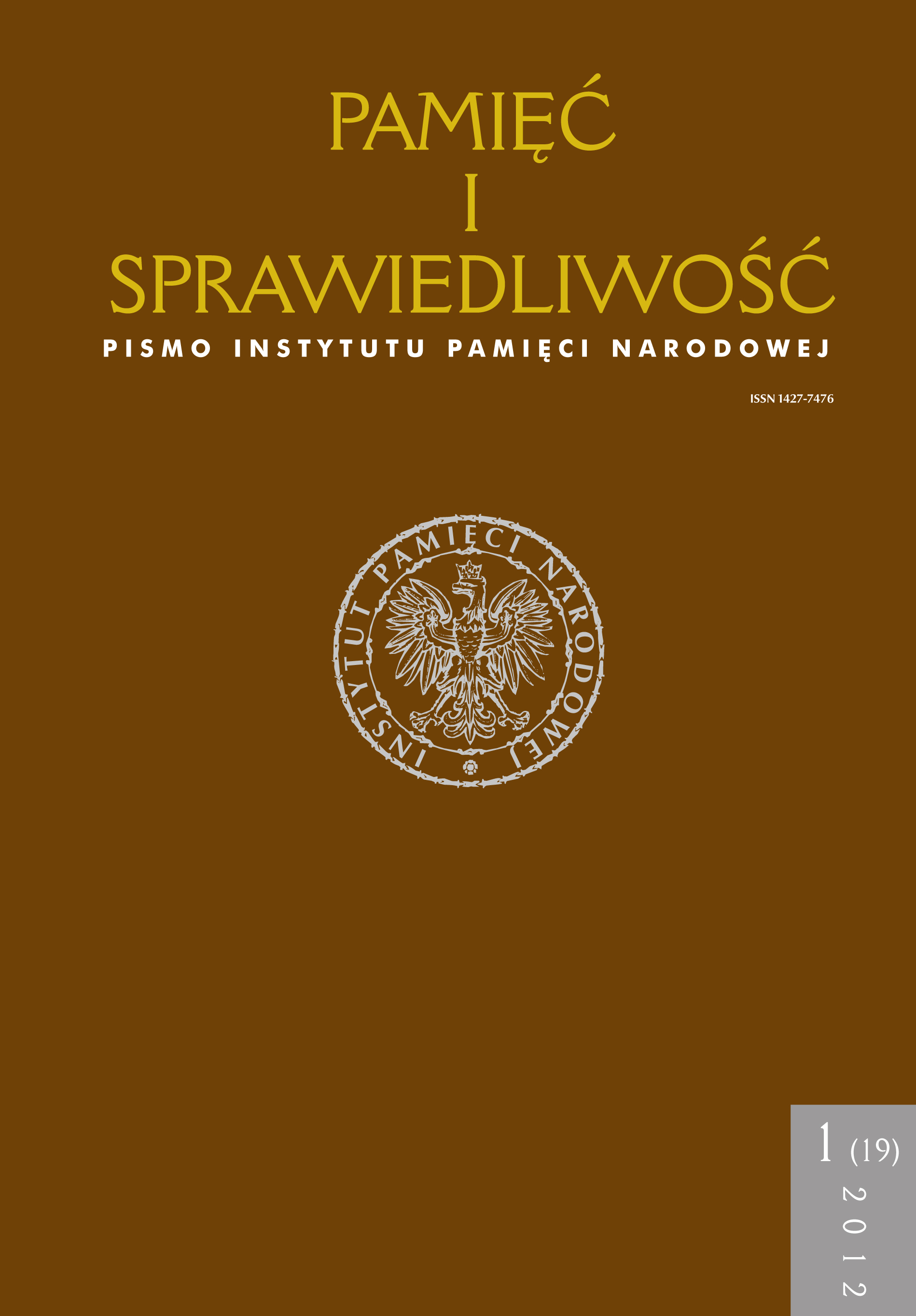Położenie ludności rodzimej powiatu sztumskiego w świetle statystyk powstałych w wyniku uchwały Biura Politycznego KC PZPR z lipca 1950 roku dotyczącej polityki wobec ludności autochtonicznej
Pamięć i Sprawiedliwość, Bd. 19 Nr. 1 (2012), pages: 221-267
Publication date: 2012-06-30
Abstract
The topic of this study is the situation of indigenous inhabitants of the Sztum
district, that is the second most numerous such population in the area of Gdańsk
Pomerania. Not only numerosity was relevant at selecting this group, also the fact
that in over 70% is was composed of a rural populace. The preserved sources, the
analysis of which has confi rmed their representativeness, realiability and features,
have determined the topic and the chronologic scope of this study. It only presents
a fragment of the life of indigenous people, illustrating their situation in the early
1950s. Preserved materials enable us to follow the activities of natives in many
fi elds of social life.
The fi rst part of the study is an analysis of the current status of research on the
issues of the indigenous population of Gdańsk Pomerania. It enabled to point out
the need of this study. A description of the period 1945–1950 makes it possible
to understand the complexity of the problem of indigenous population. It was
a turbulent time in the history of Western and Northern Territories (i.e., territories
Poland took over from Germany after WW2). Many processes that characterise
that period were the consequence of war, and the recent establishing anew of
Polish state authority. All those events, beginning with the arrival of the Soviet
army, migration of the population, and the establishment of Polish administration, had a tremendous impact on the local inhabitants. They experienced many
difficult moments in those years, completely opposite to the expectations
associated with desired freedom.
The preserved archives that are the base of this study, were created as
a consequence of PZPR’s new policy towards the indigenous population. The key decision
in that regard was the Resolution of the Party’s Central Committee of July 1950,
on the attitude towards natives. The provisions of the resolution were exercised by
carrying out various analyses by the voivodeship, district and communal
administration, relative to the situation of native people. The issues addressed by the
resolution are reflected in preserved sources, therefore, in further sections of the study
the resolution is thoroughly analysed, making it easier to understand the
substantial structure of sources that are the basis of the study. Their in-depth verification
enabled to bring closer the position of indigenous people within the social structure
of the district. This is a basic element of the study, that demonstrates how complex
are the problems related to the existence of natives in society.
The study is contributory, and it is a start point for further research on
indigenous population of Gdańsk Pomerania.
 Język Polski
Język Polski
 English
English
 Deutsch
Deutsch
 Français (France)
Français (France)
 Italiano
Italiano
 Русский
Русский


 PDF (Język Polski)
PDF (Język Polski)
